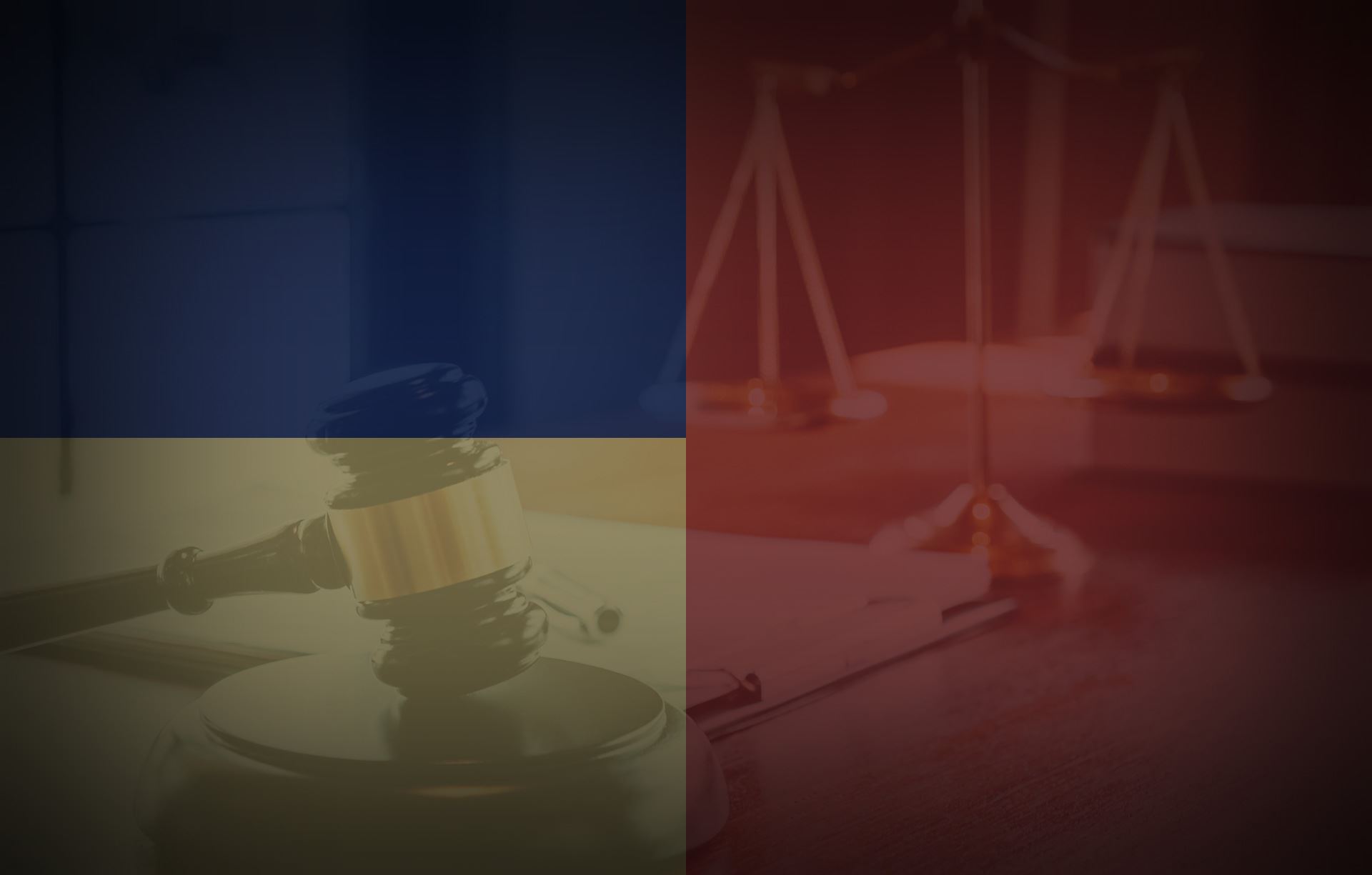
Part 3: The Trial
What are my responsibilities now that I'm part of a jury?
In any trial, two kinds of questions will have to be decided at various times. These are questions of law and questions of fact. The judge decides the questions of law. You decide the questions of fact. After you have decided the questions of fact, you will apply the law to the facts as directed by the judge at the end of the trial.
What is a "question of law?"
Questions of law involve the determination of what the law is. They may be about procedural matters (what information can be admitted as evidence, what kind of questions can be asked, which witnesses can appear, and what they can testify about). Or they may involve questions of substantive law, which create, define, and regulate the rights of parties.
What is a "question of fact?"
Quite simply, it's deciding what really happened in a case. Don't be surprised if the evidence given by both sides is conflicting or if the testimony given by one witness contradicts another. After all, if everyone was in agreement about what happened and what should be done about it, the dispute probably wouldn't be in court, and a jury probably wouldn't be needed. Your job is to listen to all the testimony, consider all the evidence, and decide what you think really happened.
Who else will be in the courtroom? What will they be doing?
A number of people will be in the courtroom besides the judge, the jury, and the attorneys. The list below explains who they are and what they'll be doing.
Plaintiff (civil case) - In a civil case, the person who brought the case to court is called the plaintiff.
Defendant (civil case) - The person being sued in a civil case is called the defendant.
Defendant (criminal case) - A person who has been charged with a crime is the defendant in a criminal case.
Attorneys or counsel - Attorneys representing the plaintiff, defendant, or the government in a criminal case are also referred to as counsel. Depending on who they represent and what court you are in, you may hear them called counsel for the plaintiff, plaintiff's attorney, counsel for the defendant, or defense attorney. An attorney representing the government in a criminal case is called the prosecuting or Commonwealth's attorney.
Court reporter - The court reporter keeps the official record by recording every word spoken during the trial.
Bailiff - The bailiff keeps order, maintains the security of the court, and helps the judge and the jury as needed.
Clerk of court - The clerk of court, also called the clerk, maintains the court files and preserves the evidence presented during the trial. The clerk may also administer the oaths to jurors and witnesses.
Witnesses - Each side in a trial will probably have a number of witnesses who have information about the dispute. Very often, the judge will ask them to wait outside the courtroom until it is their turn to testify. This is done so they won't hear each other's testimony and be influenced by it.
Sequence of a Trial
- SELECTION OF A JURY
-
OPENING STATEMENTS
- Plaintiff's attorney (or prosecuting/Commonwealth's attorney for a criminal case)
- Defendant's attorney
-
TESTIMONY OF WITNESSES AND PRESENTATION OF EVIDENCE
-
Plaintiff's attorney (or prosecuting/Commonwealth's attorney for
a criminal case)
- Direct examination of plaintiff's witnesses by plaintiff's attorney
- Cross-examination of plaintiff's witnesses by defendant's attorney
- Redirect examination of plaintiff's witnesses by plaintiff's attorney
-
Defendant's attorney
- Direct examination of defendant's witnesses by defendant's attorney
- Cross-examination of defendant's witnesses by plaintiff's attorney
- Redirect examination of defendant's witnesses by defendant's attorney
-
Plaintiff's attorney (or prosecuting/Commonwealth's attorney for
a criminal case)
- SELECTION AND PREPARATION OF JURY INSTRUCTIONS
-
JURY INSTRUCTIONS PRESENTED TO THE JURY
- Plaintiff's attorney (or prosecuting/Commonwealth's attorney for a criminal case)
- Defendant's attorney
- Plaintiff's attorney (or prosecuting/Commonwealth's attorney for a criminal case) to close the case
- CLOSING ARGUMENTS
- JURY DELIBERATIONS
- VERDICT OF JURY
What happens during a civil trial?
After the clerk or bailiff has sworn in the jury, the case is ready to begin. Both attorneys may make opening statements explaining their client's position and outlining the evidence they expect to present that will support their claims. These statements are not evidence and should not be considered as such. The witnesses for the plaintiff are then called and questioned by the attorney for the plaintiff and cross-examined by the attorney for the defendant. After cross examination, the plaintiff's attorney may reexamine some of the witnesses. After all the plaintiff's witnesses have been called and all the plaintiff's evidence has been presented, the attorney will tell the judge that the plaintiff rests.
Witnesses for the defendant may then be called. This time, the defendant's attorney questions the witnesses, and the plaintiff's attorney cross-examines them. When all the defendant's witnesses and evidence have been presented, the defense will rest. After the defendant has finished, the plaintiff has the right to offer testimony in reply.
The judge and the attorneys will then go to the judge's chambers to consider the instructions the judge will give the jurors about the law of the case (this is discussed below). After the judge has decided on the instructions, the judge and the attorneys return to the courtroom. The judge reads the jury instructions to the jury, then the attorneys make their closing arguments. The closing arguments let each attorney tell the jury what they think the evidence proves and why their client should win. These closing arguments may help jurors recall many details of the case, but they are not evidence. The plaintiff's attorney speaks first, followed by the defendant's attorney. Finally, the plaintiff's attorney speaks again and closes the case.
What are jury instructions?
Jury instructions tell the jury what the laws are that govern a particular case. Each attorney gives the judge a set of proposed jury instructions. The judge considers each instruction and gives the ones that properly state the law that applies to the case. The jurors must accept and follow the law as instructed by the judge even though they may have a different idea about what the law is or ought to be.
Who awards damages in a civil case?
In a civil case, the jury not only decides on a verdict for one side or the other, but also awards damages. That is, if the jury determines that an award of money should be made, the jury decides how much money should be paid.
How are criminal cases tried?
Criminal cases are very similar to civil cases, except instead of a plaintiff, there is a prosecuting attorney. The prosecuting attorney may represent either the Commonwealth (the state) or a city, county, or town.
What are the two types of criminal cases?
There are two kinds of criminal offenses: felonies and misdemeanors. A felony offense is one that can be punished by death or by a prison sentence of a year or more. If the felony offense is one that can be punished by death, it is called a capital offense. If the maximum punishment allowed by law is less than one year in confinement or only a fine, the offense is called a misdemeanor.
"The jury's primary role is to determine the facts based on an evaluation of all the evidence the judge rules admissible."
Who sets the punishment in criminal cases?
If the jury finds the defendant guilty in a criminal case, they set the punishment at the same time they decide their verdict. After a guilty verdict in capital cases, however, the jury hears evidence in a separate proceeding before deciding on the penalty.
Why do the attorneys object to certain statements or evidence?
An important part of an attorney's job is to protect the clients' rights during a trial. This includes making sure that the only evidence presented during the trial is evidence that is proper, relevant, and allowed by law. So if evidence is submitted that the attorney feels is improper, or if the attorney feels that the other side is asking questions that are unlawful, the attorney will call out "Objection!" By doing this, the attorney is asking the judge to rule on whether the law allows that particular piece of evidence or statement or question to be admitted. If the judge thinks it should be admitted, the judge will say, "Objection overruled." If the judge agrees that the evidence in question is improper, the judge will say, "Objection sustained." How often an attorney raises objections during the trial shouldn't bias you against that attorney's case.
Why is the jury sometimes asked to leave the courtroom in the middle of a trial?
The judge may decide to send the jury from the courtroom in the middle of a trial. While the jury is gone, the attorneys and the judge will discuss points of law or whether certain evidence can be admitted. The purpose of these discussions is to make sure that the jury hears only the evidence that is legally valid before making its decision. You will be called back to the courtroom when the judge's decision is made.
What should I do when testimony is stricken from the record?
You must disregard that testimony. Sometimes the jury hears testimony that the judge later decides they should not have heard. The judge will tell the jury to consider the case as if they had never heard it. You must follow the judge's instructions if the parties in the case are to receive a fair trial.
Can I talk to anyone about the trial while it's going on?
No. As long as the trial is still going on, do not discuss the trial with anyone. Do not even discuss the case with your fellow jurors until you begin your deliberations. When the trial is over, you can discuss it with anyone if you want to, or you may keep silent if you prefer.
Can I watch news reports of the trial or read newspaper accounts of it?
No, not as long as the trial is still going on.
What if I accidentally hear something about the trial outside the courtroom, or if someone contacts me about the trial while it is still going on, or if I realize during the trial that I have some special information that relates to the case?
Ask the bailiff to tell the judge immediately what has happened. Tell no one about the incident except the bailiff or the judge.
What if I need a break during the trial?
Jurors are given lunch breaks and may be given other breaks during a trial. If it is absolutely necessary that you take a break for some reason at any other time during the trial, tell the bailiff or the judge. But note that these requests are highly unusual and should be made only if absolutely necessary.
-
 TENS OF THOUSANDS OF CLIENTS HELPED. MILLIONS OF DOLLARS WON.Delivering real results for clients through strategic legal representation, dedication, and a proven track record of success in personal injury matters.
TENS OF THOUSANDS OF CLIENTS HELPED. MILLIONS OF DOLLARS WON.Delivering real results for clients through strategic legal representation, dedication, and a proven track record of success in personal injury matters. -
 EVERY CLIENT IS SPECIAL. EVERY CASE IS IMPORTANT.We believe in treating every client as unique and every case as significant, ensuring personalized attention and dedicated advocacy.
EVERY CLIENT IS SPECIAL. EVERY CASE IS IMPORTANT.We believe in treating every client as unique and every case as significant, ensuring personalized attention and dedicated advocacy.

Hear From Our Clients
At Larry King Law, your satisfaction is our priority! See for yourself what our clients have to say about working with us.
-
"Knowledgeable, Experienced and Committed Trial Lawyers"
The process of choosing the right criminal defense lawyer(s) can be daunting, scary, and frustrating. Choosing wrong can not ...
- Delmas Linhart -
"They Fight For Their Clients!"
Mr. King, his associates and paralegals helped me through a very difficult time in my life. I was in a car accident with my 2 ...
- Rachael -
"Great experience!!"
I was confused and embarrassed to admit I needed help but, this was a painless ordeal and I was treated with respect and unde ...
- Stacy kahler -
"Consummate Professional"
As a police supervisor, I have known Larry King professionally for over 30 years. During that time I have always found him to ...
- Lieutenant J. W. Boswell, NNPD, Retired
-
 The Power of ExperienceCharged with a crime? Put the right attorney in your corner. We fight for the accused.
The Power of ExperienceCharged with a crime? Put the right attorney in your corner. We fight for the accused. -
 The Right LawyerWe know how to defend our clients against criminal accusations. Let us help today!
The Right LawyerWe know how to defend our clients against criminal accusations. Let us help today! -
 Get Help TodayGet a smart, skilled fighter on your side. Free consultations are available.
Get Help TodayGet a smart, skilled fighter on your side. Free consultations are available.





















